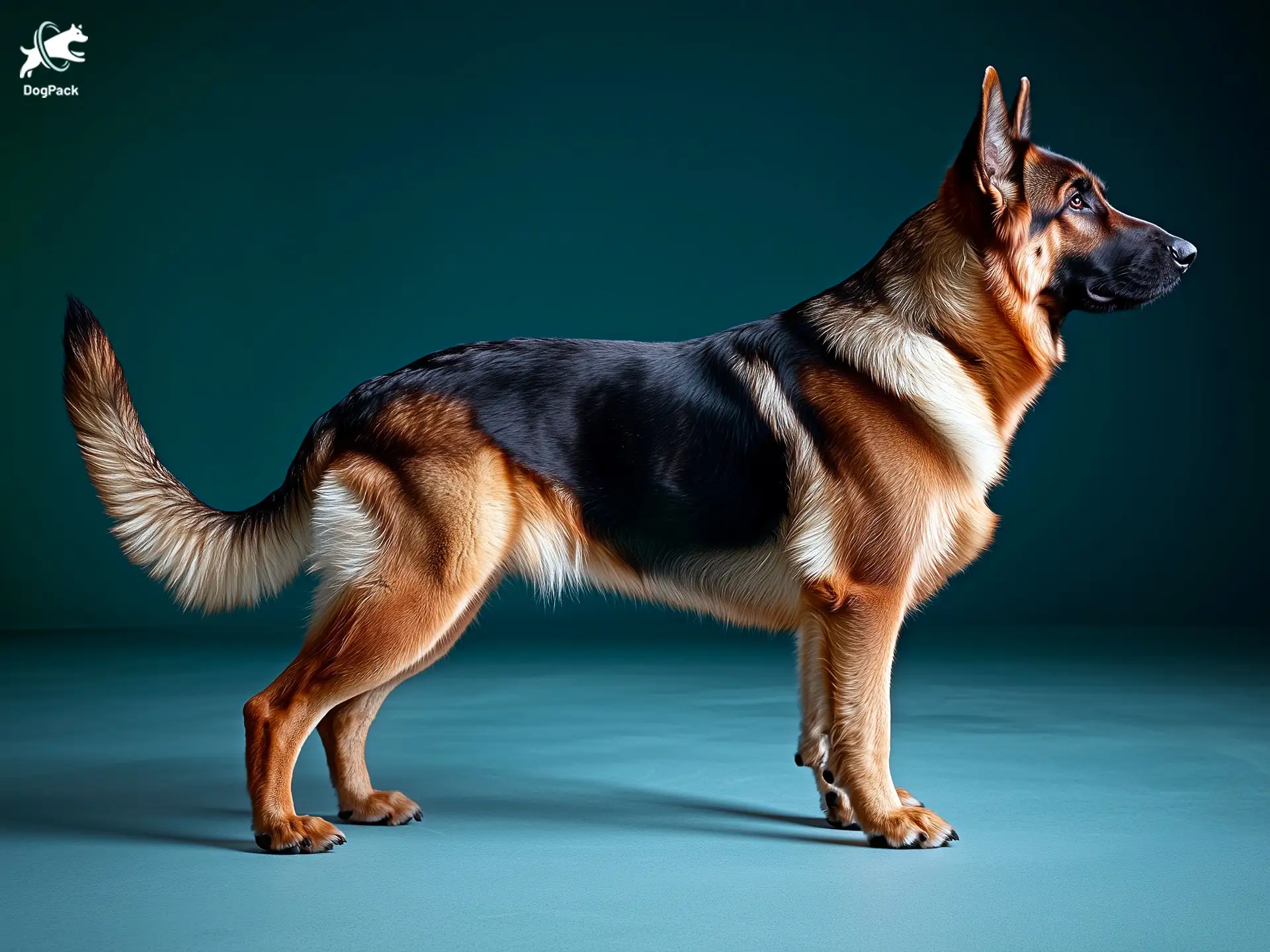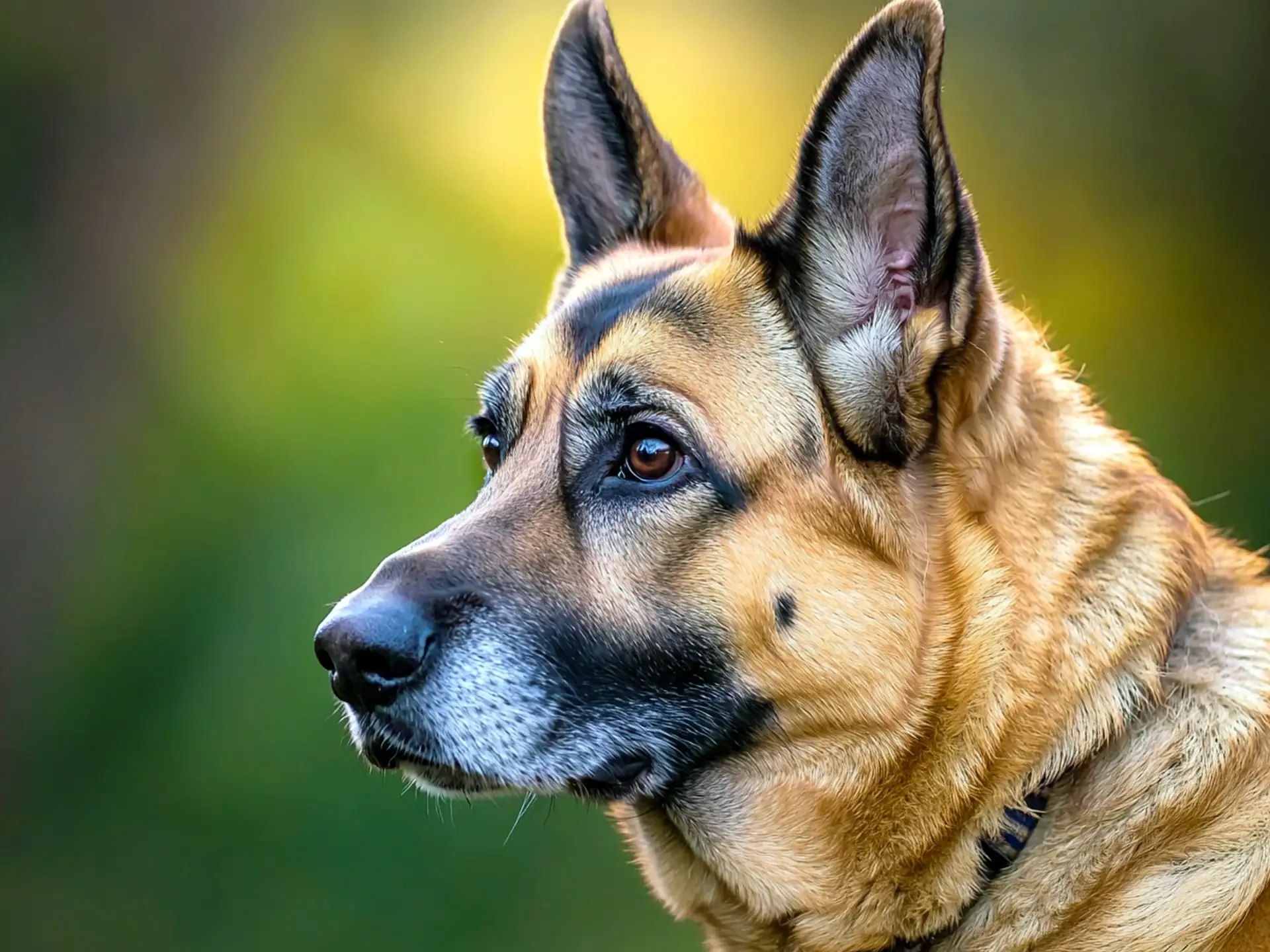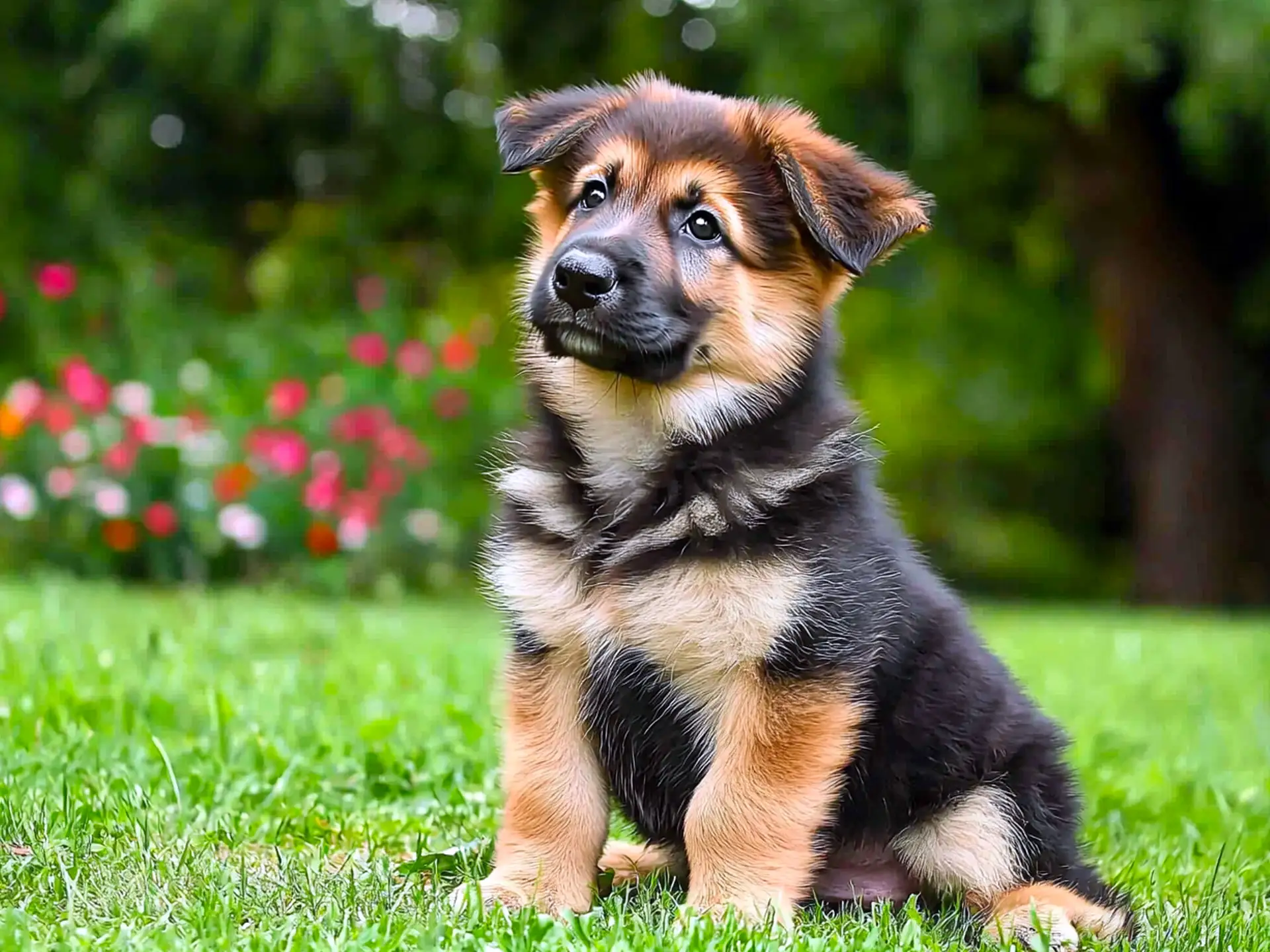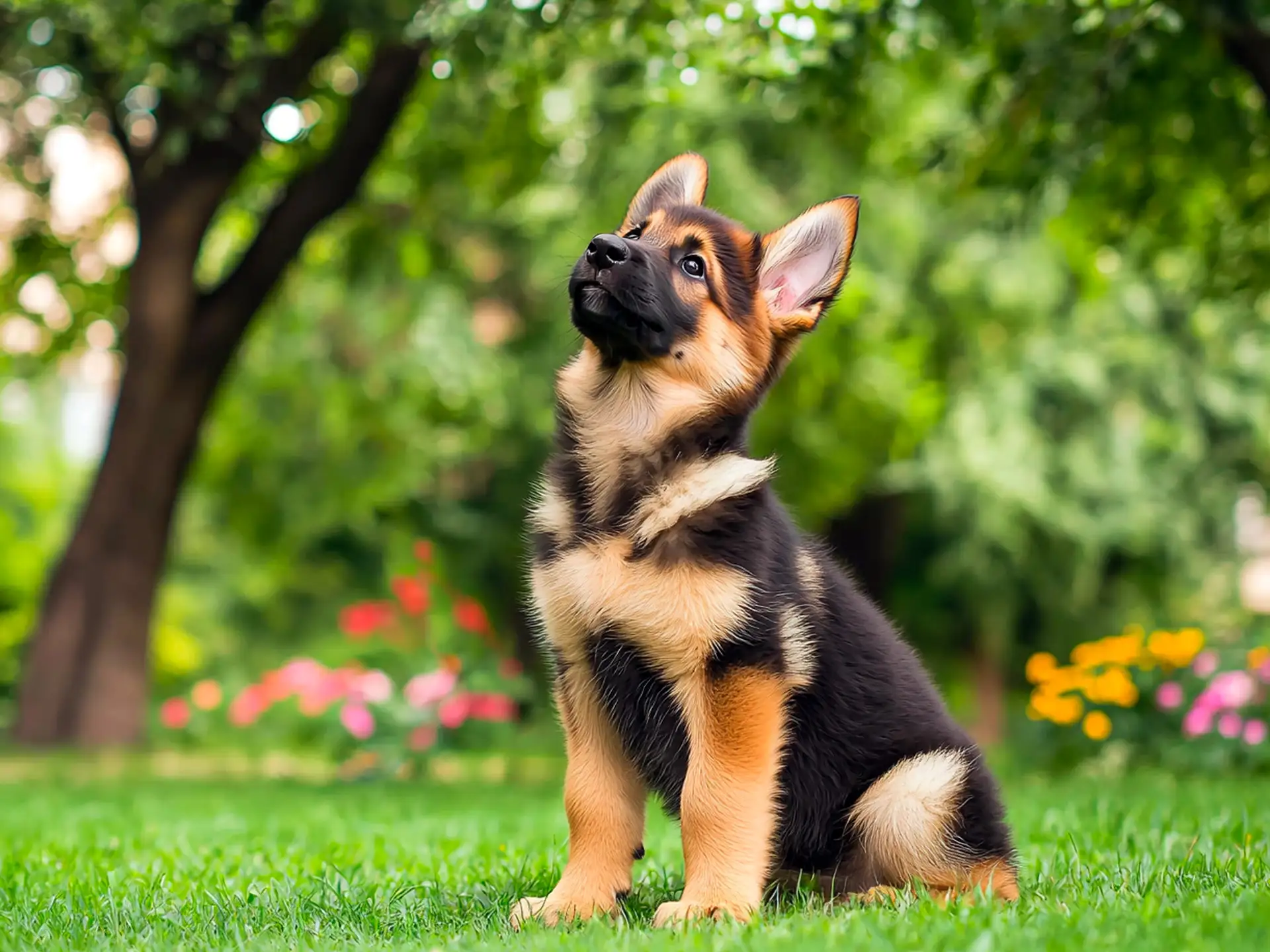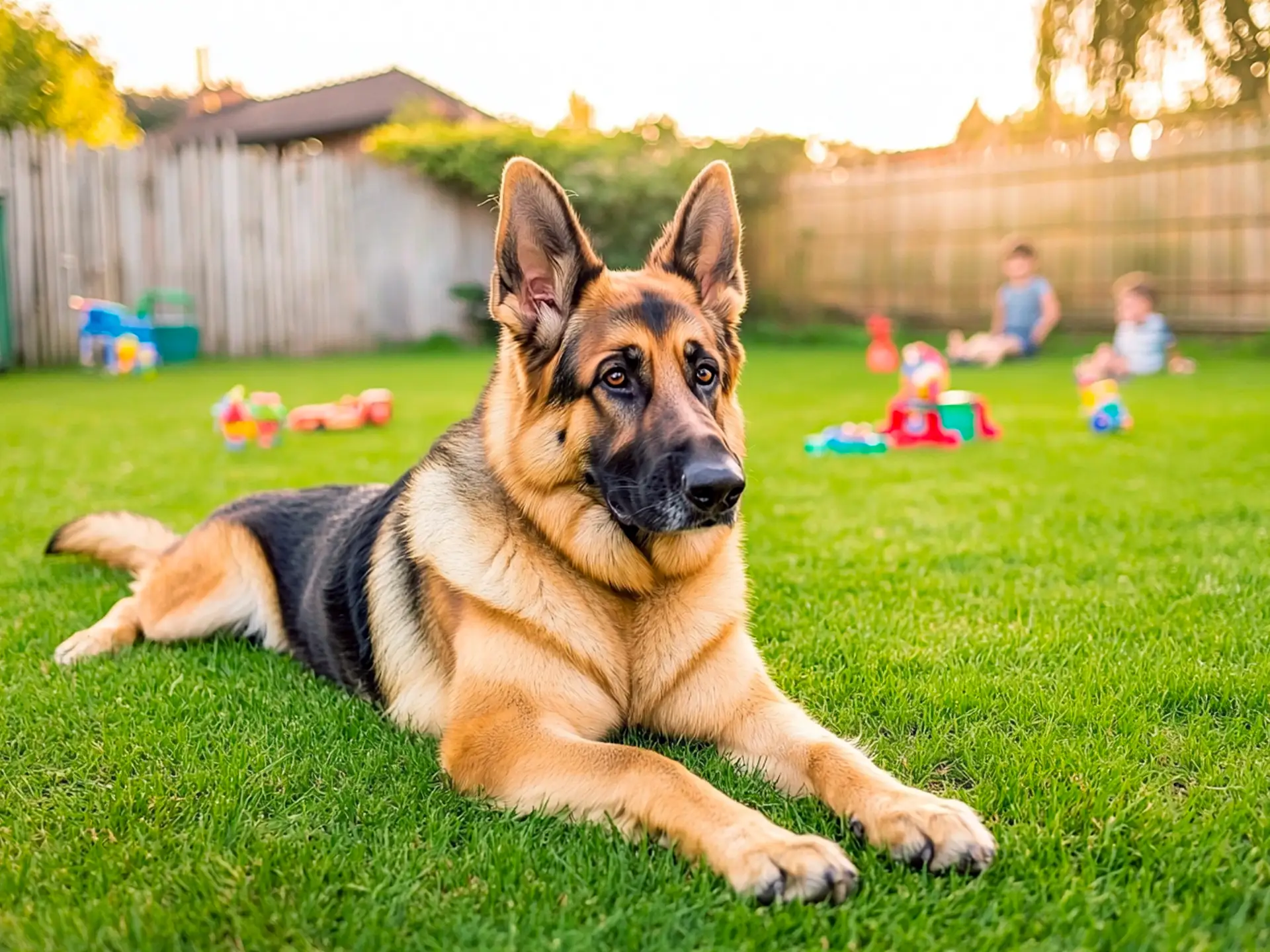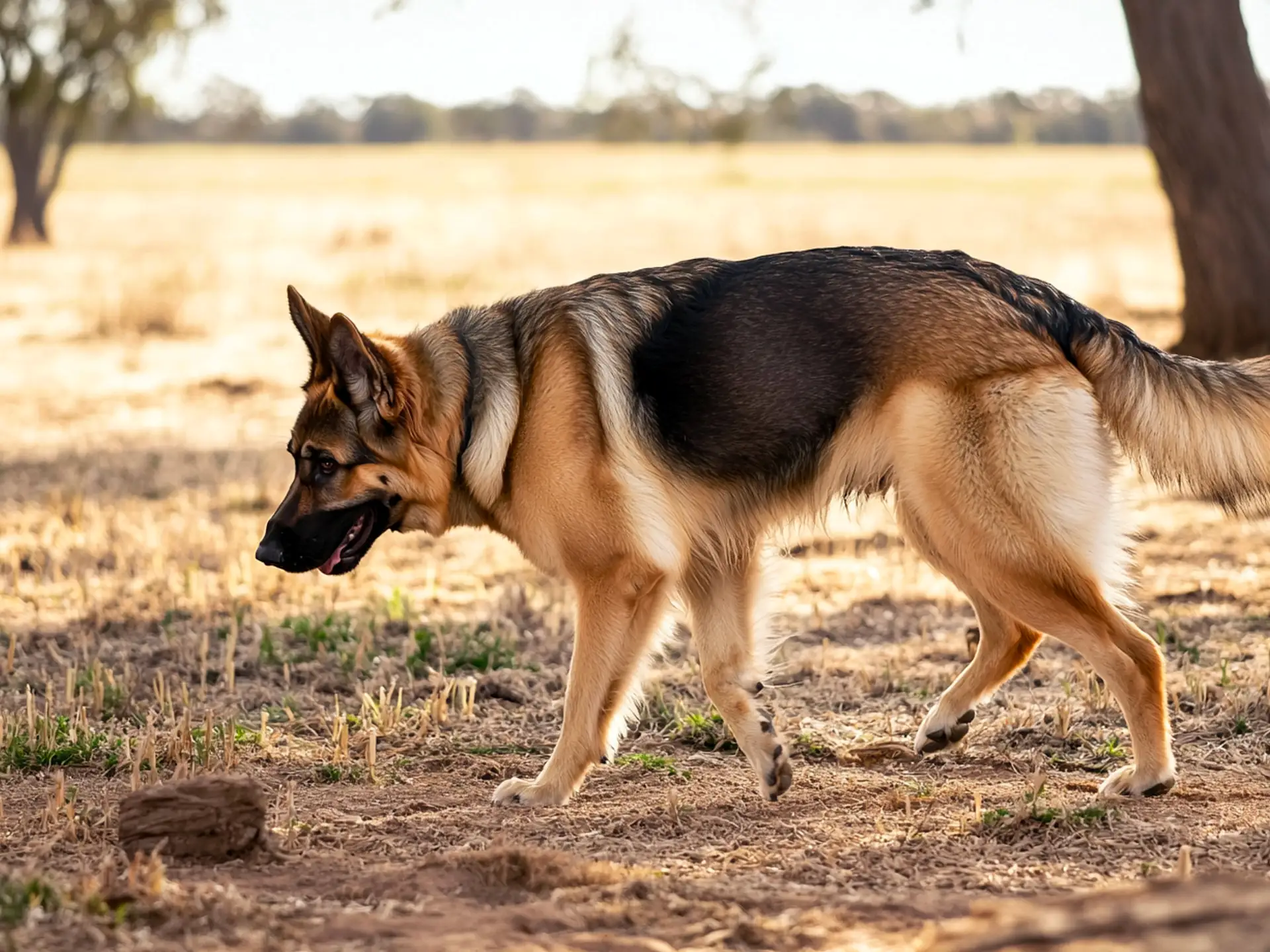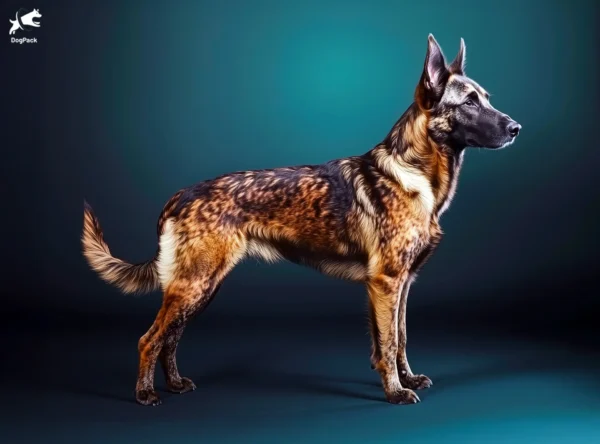German Shepherd Dog Breed Info & Overview
The German Shepherd is a remarkable breed known for its intelligence, loyalty, and versatility. Originally bred in Germany for herding sheep, they’ve become beloved family pets and reliable working dogs worldwide. Known for excelling in roles like search and rescue or police work, they combine keen instincts with adaptability. Whether for protection or companionship, the German Shepherd brings unmatched dedication and spirit.
Characteristics
Pictures
Breed History
The German Shepherd originated in late 19th-century Germany, developed by Captain Max von Stephanitz. His goal was to create the perfect herding dog, combining intelligence, speed, strength, and keen senses. The breed quickly gained popularity for its versatility and work ethic.
During World Wars I and II, German Shepherds served as messengers, rescuers, and guard dogs. Their bravery and intelligence caught the world’s attention, leading to increased popularity beyond Germany. Despite wartime tensions, the breed remained beloved globally.
In the post-war era, German Shepherds became stars of film and television, like Rin Tin Tin. Their on-screen heroics showcased their capabilities, further cementing their status as one of the world’s most admired breeds.
Temperament, Personality
German Shepherds are renowned for their loyalty and protective nature. They form strong bonds with their families and are often wary of strangers, making them excellent guardians. Their intelligence means they pick up on training quickly, but it also means they need mental stimulation.
Around children, German Shepherds are gentle and watchful, often acting as protectors. Early socialization is key to ensuring they get along well with other pets. Their strong instincts make them attentive and responsive companions.
These dogs thrive on companionship and can develop separation anxiety if left alone too long. Their affectionate yet vigilant demeanor makes them both loving family members and dependable protectors.
Physical Characteristics
The German Shepherd is a large, muscular dog with a distinctive appearance. They have a double coat consisting of a dense undercoat and a straighter outer coat, which comes in various colors like black and tan or solid black. Their erect ears and almond-shaped eyes give them an alert expression.
Males typically stand 24–26 inches tall (61–66 cm), while females are slightly smaller at 22–24 inches (56–61 cm). Weighing between 50–90 pounds (23–41 kg), they have a well-balanced physique that’s both agile and powerful.
Their bushy tail and strong, athletic build contribute to their ability as working dogs. The German Shepherd’s physical traits are a perfect blend of beauty and functionality.
Health Issues
German Shepherds are generally healthy but can be prone to certain genetic health issues. Hip and elbow dysplasia are common concerns due to their size and build. Regular veterinary check-ups can help detect these issues early.
They may also be susceptible to degenerative myelopathy, a spinal cord disease, and certain heart conditions. Maintaining a healthy diet and proper exercise routine can mitigate some health risks.
Responsible breeders often screen for these conditions. Ensuring your German Shepherd comes from a reputable source can reduce the likelihood of inherited health problems.
Grooming Needs
With their double coat, German Shepherds shed year-round and heavily during seasonal changes. Regular brushing—at least several times a week—is necessary to manage shedding and keep their coat healthy.
Bathing should be done as needed, typically every few months, to avoid stripping natural oils from their skin. Pay attention to their ears, keeping them clean to prevent infections.
Their nails should be trimmed regularly, and dental hygiene shouldn’t be overlooked. Despite the shedding, grooming a German Shepherd can be a bonding experience that keeps them looking their best.
Exercise Requirements
German Shepherds are high-energy dogs that require ample exercise to stay happy and healthy. Aim for at least 1–2 hours of physical activity daily, including walks, runs, and playtime.
They excel in activities like agility training, obedience competitions, and herding trials. Mental stimulation is just as important; puzzle toys and training sessions keep their intelligent minds engaged.
Without sufficient exercise, they may develop behavioral issues like excessive barking or chewing. An active lifestyle is essential for a well-adjusted German Shepherd.
Training Tips
Training a German Shepherd is a rewarding experience thanks to their intelligence and eagerness to please. Start with basic obedience training early on, using positive reinforcement techniques.
Consistency is key, as they respond well to clear commands and routines. Socialization from a young age helps them interact positively with other dogs and people.
Be mindful of their protective instincts. Proper training ensures they can differentiate between real threats and normal social interactions, making them confident and well-mannered companions.
Nutrition, Diet
Feeding a German Shepherd requires attention to their specific nutritional needs. A high-quality, protein-rich diet supports their active lifestyle and muscular build. Adult German Shepherds typically need 3–4 cups of dry food daily, divided into two meals.
Consider their age, weight, and activity level when determining portion sizes. Puppies have different dietary requirements and may need food formulated for large-breed growth.
Consult with a veterinarian to tailor a diet plan that meets your German Shepherd’s unique needs. Avoid overfeeding to prevent obesity, which can exacerbate health issues like hip dysplasia.
Adoption, Breeders
When looking to bring a German Shepherd into your home, consider reputable breeders who prioritize health and temperament. Visit the German Shepherd Dog Club of America for breeder referrals and breed-specific information.
Adoption is another wonderful option. Organizations like the German Shepherd Rescue and Adoption specialize in rehoming these dogs. They can match you with a German Shepherd that fits your lifestyle.
Always ask for health clearances and meet the dog in person if possible. Responsible sourcing ensures a healthier, happier companion.
Family Pet?
German Shepherds make excellent family pets for those who can meet their needs. They are affectionate with family members and protective of children, often forming strong bonds.
Their size and energy level mean they need space to roam and play. A fenced yard and an active household are ideal. Supervision with small children is recommended due to their strength.
Early socialization ensures they get along with other pets. With the right environment, a German Shepherd can be a loving and loyal addition to your family.
Right For You?
If you’re active and looking for a devoted companion, the German Shepherd might be the perfect match. They thrive in homes where they receive ample exercise, training, and mental stimulation.
Their protective nature makes them excellent guardians, but they require commitment to training and socialization. They’re not the best choice for apartment living or for owners who are away frequently.
Consider your lifestyle and ability to meet their needs. If you can, you’ll find a lifelong friend in the German Shepherd.
Conclusion
The German Shepherd is a breed like no other—intelligent, loyal, and versatile. They excel as working dogs and loving family companions. If you’re ready to invest time and energy, you’ll be rewarded with unwavering devotion and a truly remarkable canine partner.
FAQs
-
What are the common health issues in German Shepherds?
German Shepherds may face health issues like hip and elbow dysplasia, degenerative myelopathy, and heart conditions. Regular vet check-ups and proper care can help manage these risks.
-
How much exercise does a German Shepherd need daily?
A German Shepherd requires at least 1–2 hours of exercise each day. This includes physical activities like walking or running and mental stimulation through training or puzzles.
-
Are German Shepherds good with other pets?
With proper socialization from a young age, German Shepherds can get along well with other pets. Their natural instincts may require careful introductions and consistent training.
-
What kind of training is best for a German Shepherd?
Positive reinforcement training works best for German Shepherds. Consistent, reward-based methods help harness their intelligence and eagerness to please, leading to successful obedience.
-
Do German Shepherds shed a lot?
Yes, German Shepherds have a double coat and shed heavily, especially during seasonal changes. Regular brushing several times a week helps manage shedding and keeps their coat healthy.
Breed Ratings
German Shepherds are highly intelligent, making training a rewarding experience for both owner and dog.
They enjoy playtime and bonding activities, especially with their family members.
A high-energy breed that thrives with plenty of exercise and mental stimulation.
Heavy shedders year-round, requiring regular grooming to manage their dense coat.
Moderate prey drive; early training can help manage chasing instincts.
Their heavy shedding and double coat mean grooming can be time-consuming.
Eager to learn and respond well to consistent, positive training methods.
They prefer companionship and may develop anxiety if left alone for long periods.
Moderate barkers; they may vocalize to alert or communicate.
Minimal drooling compared to other large breeds.
Can be friendly with other dogs if properly socialized from a young age.
Generally healthy but prone to certain genetic conditions; regular vet care is important.

